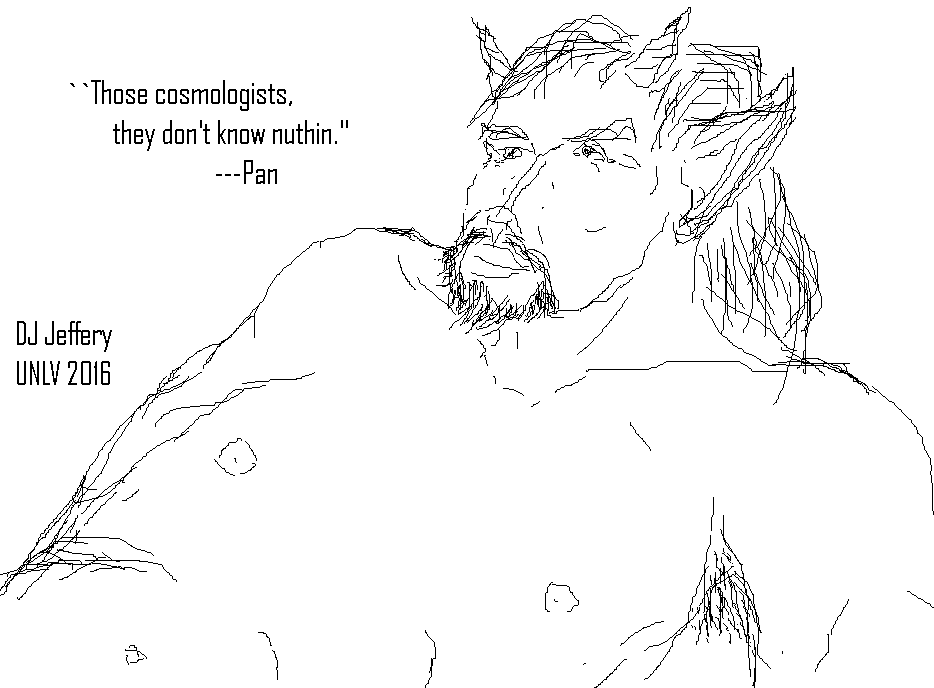
Caption: Pan---good-natured, smug, chthonic--- god of flocks, shepherds, highlands, wilderness, panic, Arcadia, folk music (particularly with the pan flute), nymphs, and the pan-universe---in ancient Greek το παν = to pan (see David J. Furley 1987, The Greek Cosmologists, p. 136).
Actually, it's a false etymology to derive the Greek god Pan's name from the ancient Greek word pan = παν meaning "all", "of everything", or "involving all members" of a group---or vice versa---but what heck. Of course, we use pan = παν modern times as prefix as in pandemic.
But to come to the point, in astronomy/cosmology, it is conventional to use the words "universe" and "universal" when referring to the observable universe.
This creates a problem when one wants to refer to all physical reality which is the universe by any reasonable definition.
One could just say "all physical reality", but that's awkward and just doesn't have the right nuance.
With faint hope of it catching on, yours truly suggests using the words
pan-universe & pan-universal
when referring to all physical reality when there is any ambiguity about what is meant. For the definitions of these idiosyncratic words, give the extra reference "(see Definition: Pan-universe)".
-
Yours truly thinks the
concept of
multiverse is too varied
for the word
"multiverse"
to be a good substitute for
"universe".
The Presocratic philosophers Leucippus (first half of 5th century BCE and Democritus (c.460--c.370 BCE) (the founders of atomism) proposed the cosmological theory in which το παν = to pan, infinite and eternal, contained infinitely-many cosmoi, finite in size and time and, aside from the cosmoi, was something like the mythical chaos and was full of randomly moving atomism atoms (see David J. Furley 1987, The Greek Cosmologists, p. 136ff). The observable cosmos was just the cosmos containing humankind.
In one respect, Leucippus and Democritus were behind their times in ancient Greece: they thought of the Earth as being a flat Earth and at the bottom of its cosmos. The spherical Earth theory was probably first proposed by Parmenides (early 5th century BCE) (see David J. Furley 1987, The Greek Cosmologists, p. 41, 56). and was becoming widely known by the later 5th century BCE at least among ancient Greek philosophers like Socrates (469?--399 BCE) (see David J. Furley 1987, The Greek Cosmologists, p. 55).
The cosmology of Leucippus and Democritus is reminiscent of the eternal inflation multiverse theory---which makes one wonder if all cosmological theories just recapitulate what some ancient Greek philosopher thought of first.
Credit/Permission: ©
David Jeffery,
2016 / Own work.
Image link: Itself.
Local file: local link: pan.html.
File: Ancient astronomy file:
pan.html.